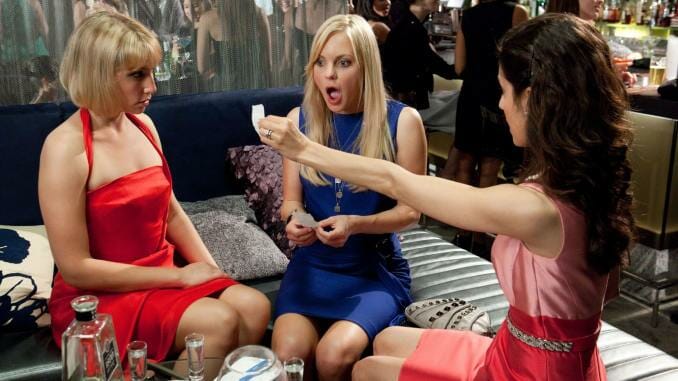What’s Your Number? Tried Taming the Unruly Hilarity of Anna Faris and Ended Her Movie Star Career

Earlier this year, the 2011 comedy Bridesmaids celebrated its 10th anniversary, and the anniversary of several turning points: In the careers of star and co-writer Kristen Wiig, director Paul Feig and producer Judd Apatow; in the wresting of arrested-adolescence narratives away from the usual Apatow boys; in tortured but long-overdue thinkpieces about “women in comedy.” Speaking of those comedy thinkpieces: About a month before Bridesmaids opened in theaters everywhere, The New Yorker published a detailed profile by Tad Friend entitled “Funny Like a Guy,” referring to the comic magic of Anna Faris, who was then preparing her new comedy What’s Your Number? for release. The article paid tribute to her talent while chronicling the resistance of studio executives to let female comedians get too outrageous. The movie came out some months later and celebrates its own 10th anniversary this week.
“Celebrates” probably oversells its case. What’s Your Number? was not a Bridesmaids-sized hit. It was not even a Bride Wars-sized hit. It made $5 million and change on its opening weekend (and would have slightly less than that, had I not dragged half a dozen friends to its opening night for my birthday party). At the time, it was one of the five worst openings ever for a movie debuting in at least 3,000 theaters. Its fortunes did not improve from there, neither at the domestic box office nor in the minds of cinema scholars. By way of contrast, Faris’s comedy Smiley Face, from a few years earlier, made even less—it was barely released in theaters—but has since earned warm, lasting embraces from comedy fans and stoners. Number is far less beloved than the revealing magazine article it inspired.
The movie itself is, in fact, premised on a magazine article, though nothing so lofty as a New Yorker profile. Ally Darling (Faris), an unlucky-in-love and recently fired single woman, is feeling low when she reads a Marie Claire piece claiming that statistically, women who have slept with more than 20 men are unlikely to get married. Hovering around the big two-zero herself, Ally really leans into the high-concept lifestyle and takes it upon herself to track down past exes and see if any of them have evolved into husband material. It’s High Fidelity by way of wedding-fixated 2000s rom-coms. It also more or less killed Faris’s career as a cinematic leading lady.
Since Number, Faris has kept busy with voice work, a few supporting parts and a leading role on the well-regarded CBS sitcom Mom, as well as a popular podcast, but she wasn’t the unequivocal lead in another movie until the 2018 remake of Overboard. It seems pretty clear that Number was her shot at next-level stardom after the success of The House Bunny; instead of completing her ascent, it abruptly and messily concludes a very loose trilogy of starring vehicles, with Smiley Face, House Bunny and What’s Your Number? serving as an unintentional guide to wrestling with 2000s-era femininity.
-

-

-

-

-

-

-

-

-

-

-

-

-

-

-

-

-

-

-

-

-

-

-

-

-

-

-

-

-

-

-

-

-

-

-

-

-

-

-

-








































